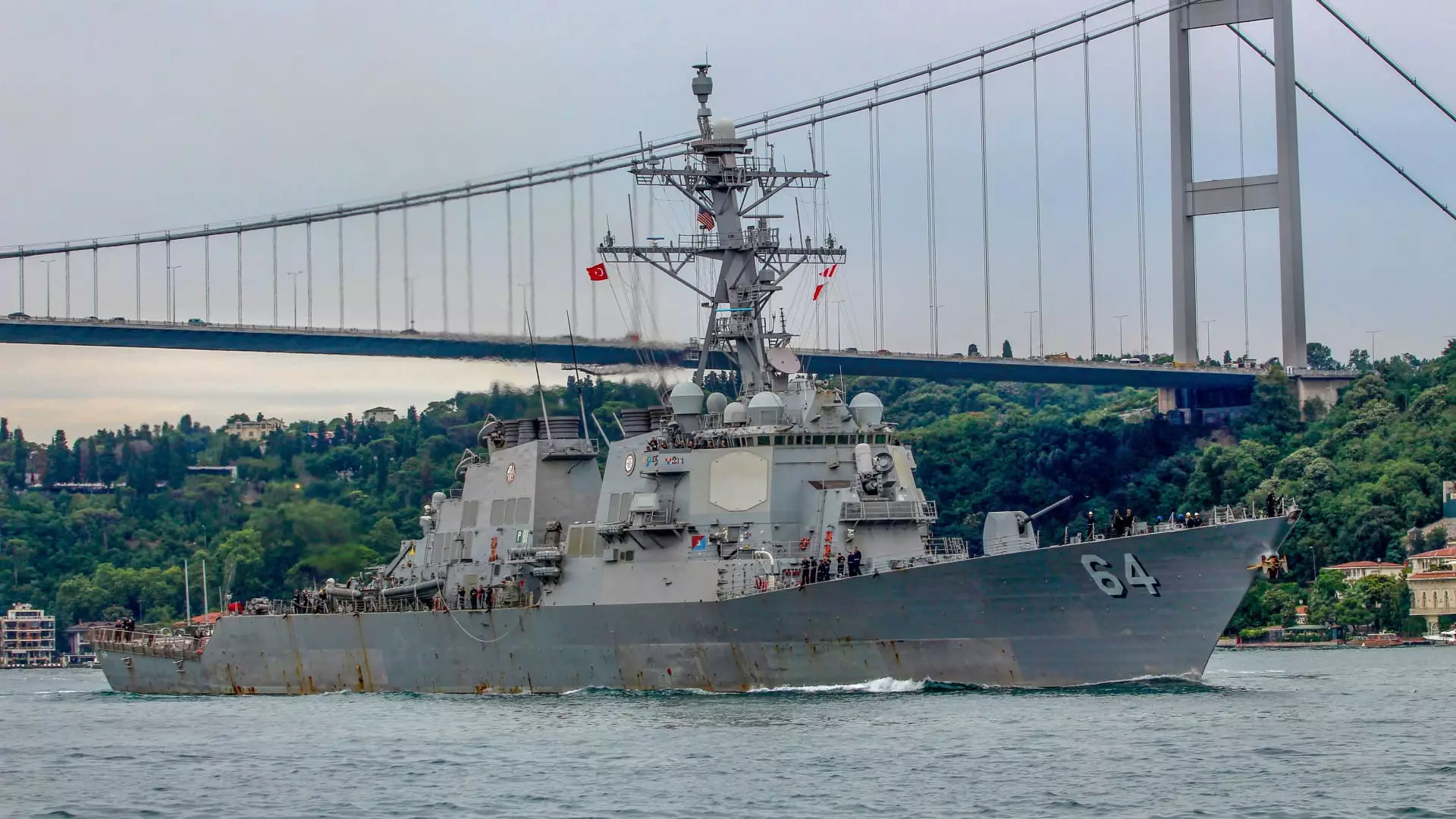In a recent display of military prowess and commitment to maritime security, a U.S. warship effectively intercepted and destroyed 14 suspected attack drones over the Red Sea. Simultaneously, a Royal Navy destroyer also successfully downed a drone that posed a threat to commercial ships. These actions were conducted amidst rising tensions in the region, particularly between Houthi rebels in Yemen and Israel. The significance of these interceptions cannot be overstated, as they highlight the important role of naval forces in protecting international commerce and maritime security.
Over the past few weeks, Houthi rebels have been perpetrating attacks on vessels transiting the Red Sea, a vital trade route. Additionally, they have launched drones and missiles towards Israel, intensifying an already volatile situation. In response, the U.S. Central Command confirmed that the destroyer USS Carney successfully engaged and neutralized 14 unmanned aerial systems originating from Houthi-controlled areas in Yemen. Thankfully, the missile interceptions caused no harm to the ships or any reported injuries. Meanwhile, Defense Secretary Grant Shapps announced that the Royal Navy’s HMS Diamond fired a Sea Viper missile, effectively destroying a drone that targeted merchant shipping. Of note, this marks the first time since the 1991 Gulf War that the Royal Navy has engaged and shot down an aerial threat in an act of defense.
The attacks on commercial ships and the strategic military responses pose a direct threat to international commerce and maritime security. Both the U.S. and the U.K. are resolute in defending the free flow of global trade, necessitating their intervention in this escalating situation. As a result, HMS Diamond was deployed to the region as a deterrent, bolstering the presence of naval vessels from other countries such as France. It is crucial to safeguard the shipping lanes in the face of mounting aggression from Houthi rebels, who have sought to disrupt maritime activities not only through drones but also through ballistic missiles. This intensified the threat to trade, leading shipping companies like CMA CGM and Maersk to temporarily suspend their journeys in the Red Sea until further notice.
The ongoing Israel-Hamas conflict has widened the scope of the threat to commercial shipping. This is particularly alarming as Iran, a supporter of both Houthi rebels and Hamas, exacerbates tensions in the region. Houthi rebels’ recent barrage of drones aimed at the port city of Eilat in southern Israel demonstrates their ability to strike deep into Israeli territory. Furthermore, Egypt’s air defense shot down a “flying object” off the Red Sea, underscoring the escalating nature of the conflict and the potential for unintended consequences. Consequently, the protection of vessels becomes crucial in preventing further disruptions to global trade.
Given the impact on global commerce, a collective effort is required to tackle the escalating threats. Vessels from the U.S., U.K., France, and other nations have deployed to the region, displaying international solidarity in ensuring maritime security. By joining forces, these countries aim to counteract the Houthi rebels’ aggression and protect the vital trade artery linking Africa to the Arabian Peninsula. It is essential to deter further attacks, such as the recent missile strikes on three commercial ships, promptly addressed by the U.S. military.
The recent downing of multiple drones by U.S. and U.K. warships underscores the significance of maintaining international commerce and maritime security. Houthi rebels’ attacks on vessels in the Red Sea have threatened trade and prompted military responses to neutralize the threat. The concerted efforts by nations, including the U.S., U.K., and France, aim to protect the free flow of global trade and demonstrate a commitment to maintaining the security of vital shipping lanes. As tensions persist in the region, the protection of vessels remains paramount to safeguarding international commerce and maritime security in an increasingly complex geopolitical environment.


Leave a Reply